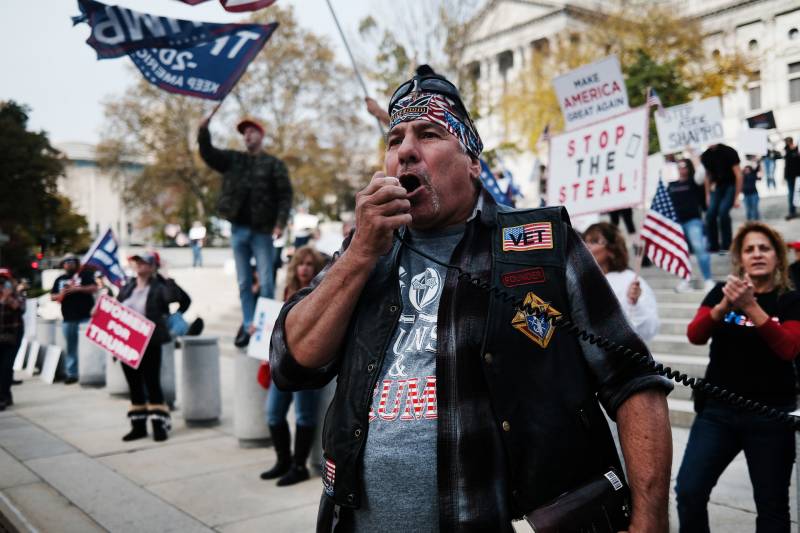If you’ve been worried about disinformation or even violence threatening the legitimacy of this presidential election, you’re not alone. Hate speech watchers like the Anti-Defamation League are on high alert.
As several critical battleground states continue to count ballots, President Trump and some of his supporters continue to circulate misinformation about the election — lies which resulted in Twitter applying warning labels to the president’s tweets and permanently suspending an account belonging to former White House chief strategist Steve Bannon. Facebook decided to remove the #StoptheSteal campaign altogether.
But the lies are not just burning in the crispy underbrush of Twitter and Facebook.
“[They’re also moving] on TikTok, Parler and Telegram. Think of how many platforms you are aware of. Multiply that by 10,” said Oren Segal, vice president of ADL’s Center on Extremism.
Take, for example, Twitch, best known as a streaming site for video gamers and the people who like to watch them play and talk. Segal reports some of that talk during election season has been political. When that political talk veers into hate, harassment and misinformation, ADL representatives say they reach out to the Amazon-owned company’s trust and safety team to make sure they’re aware of what’s happening and taking steps to address it.

